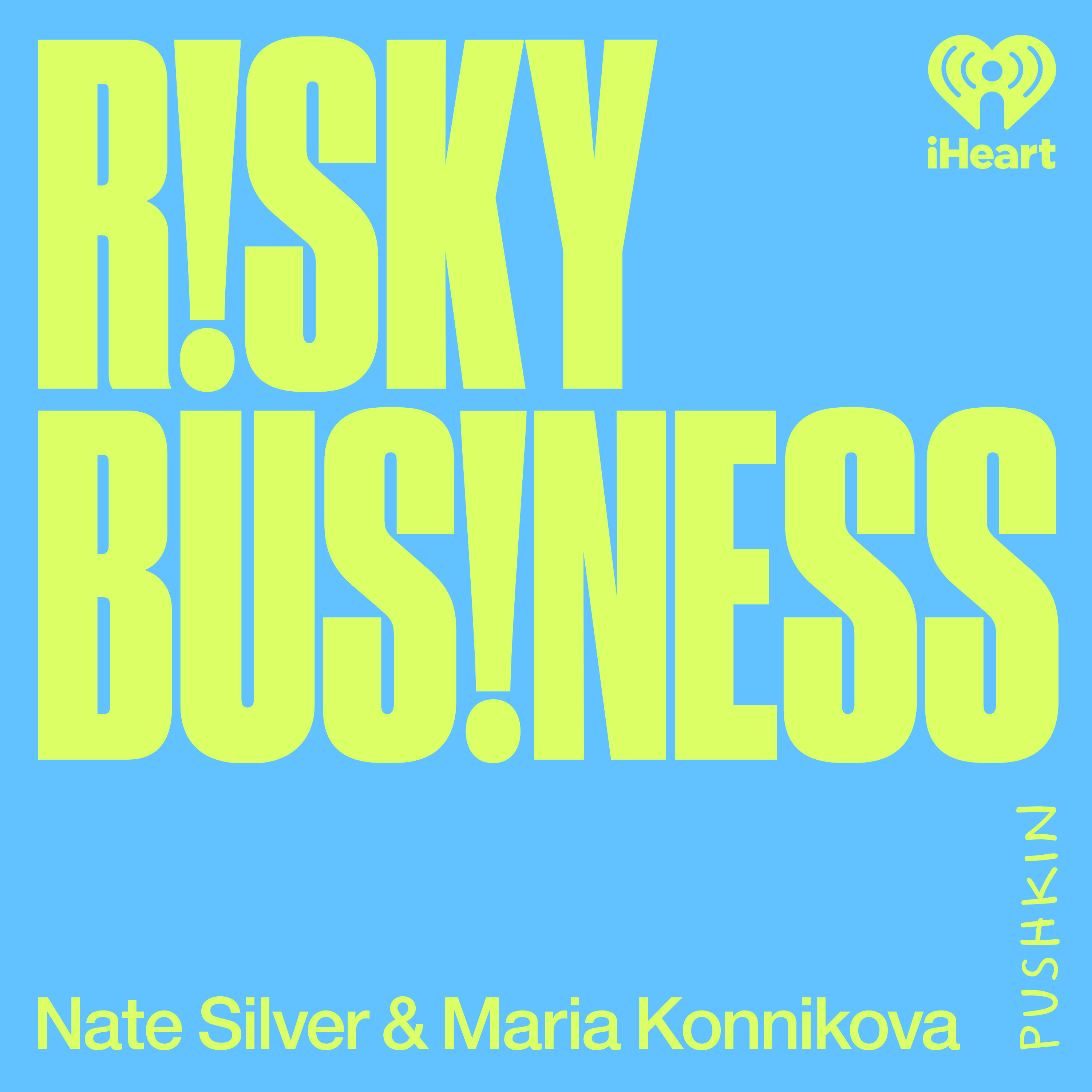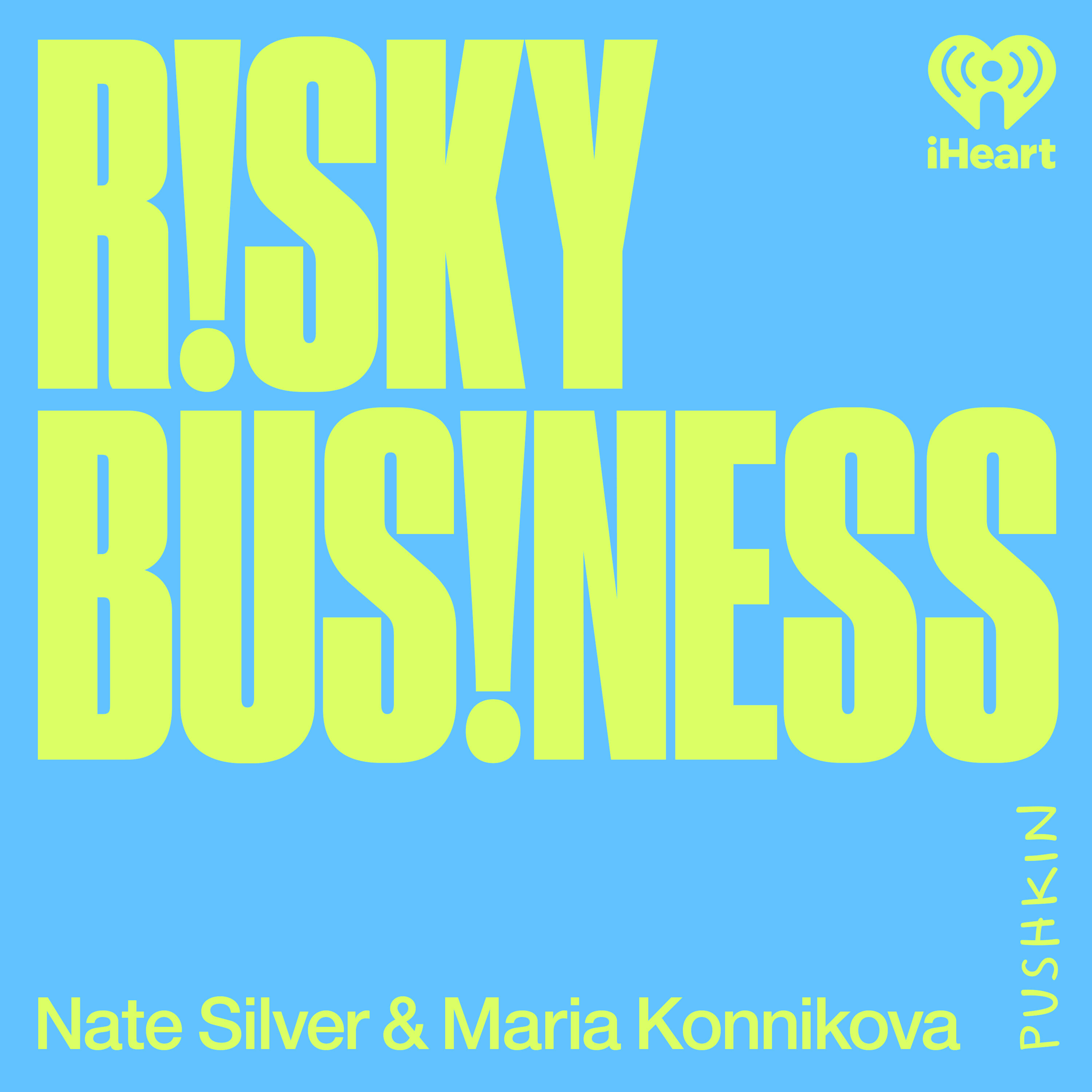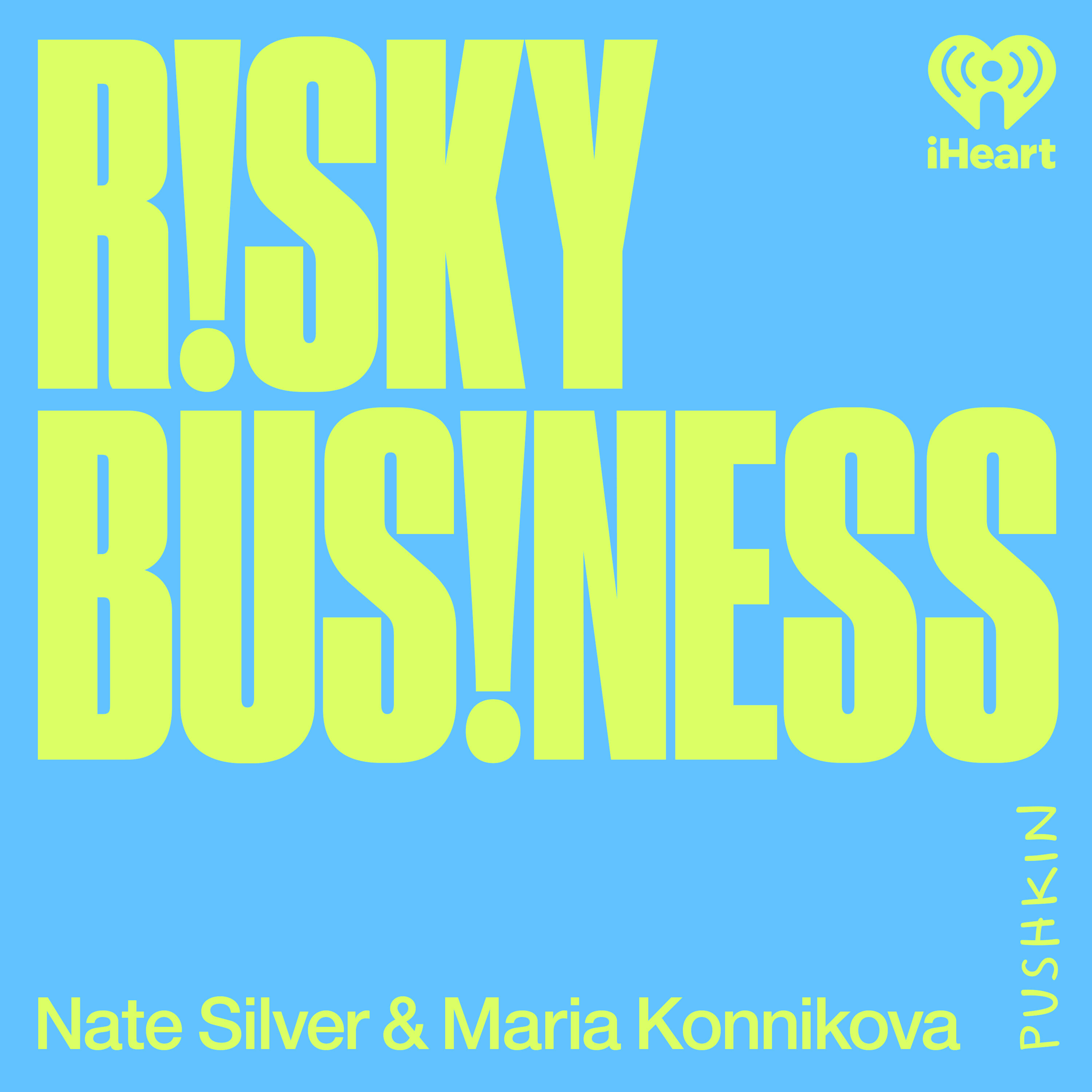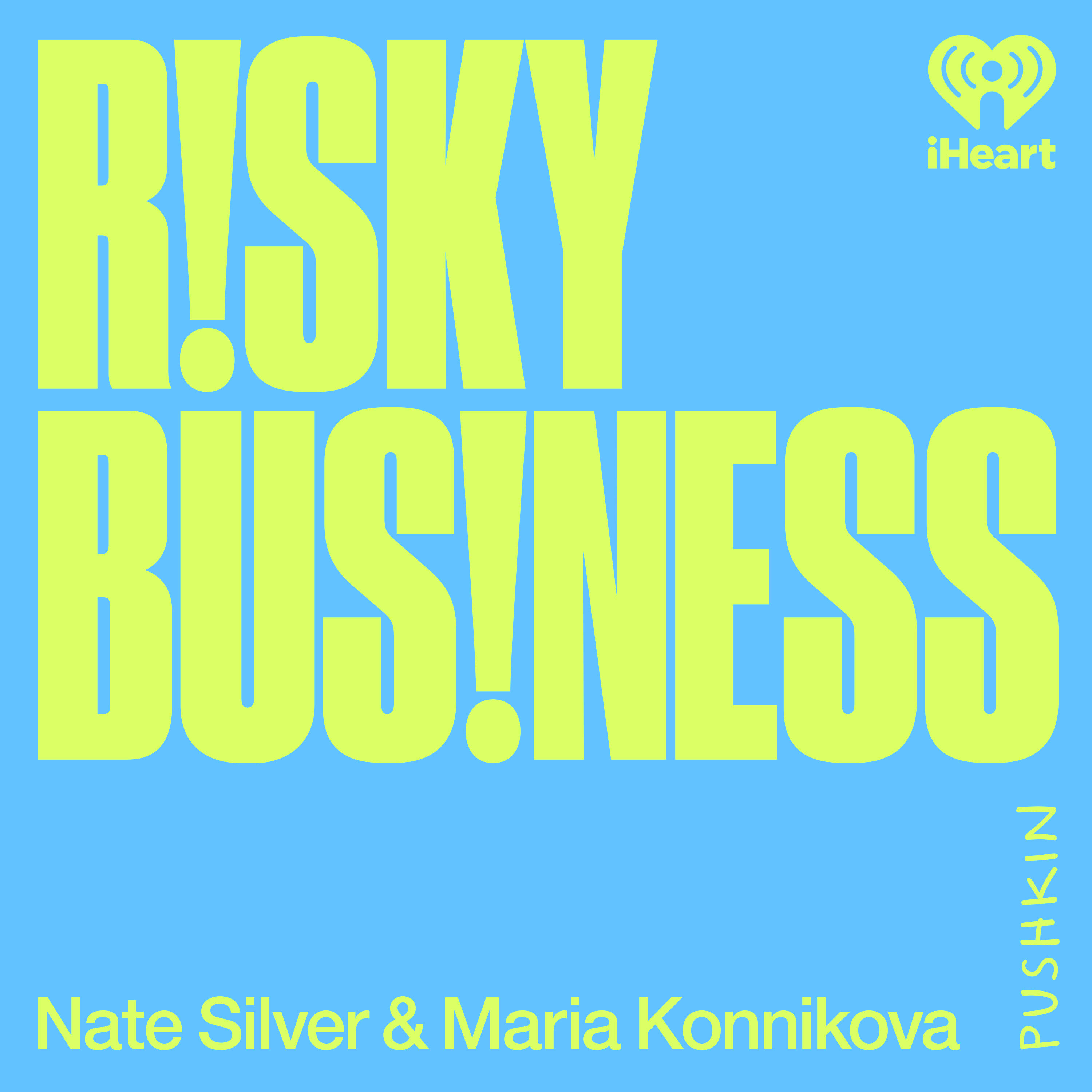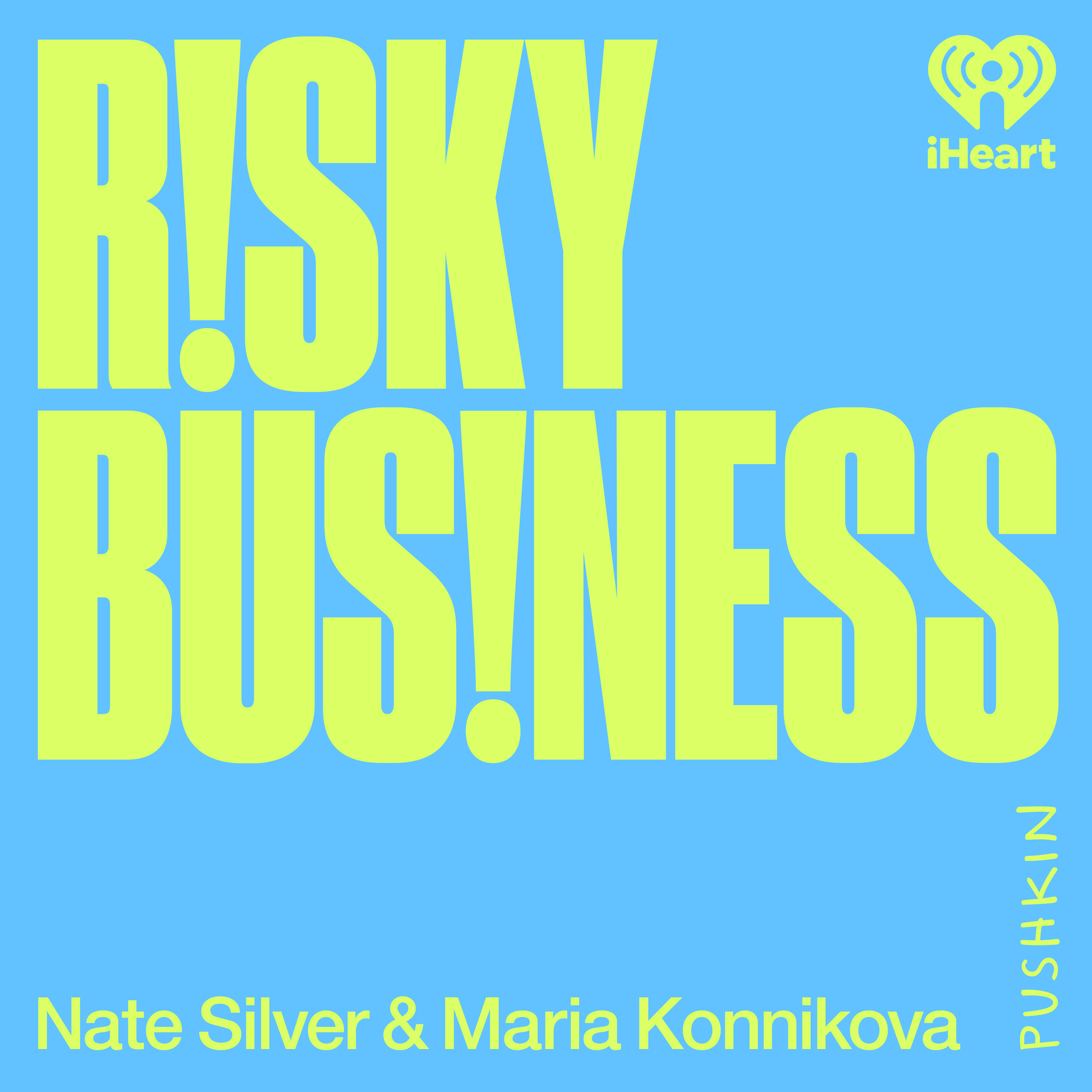What the Nobels Tell Us About the World Right Now
The 2025 Nobel Prizes have now been announced, and Maria convinces Nate to learn about the winners. They discuss the selection process, the economic award for research on “creative destruction,” and what prizes they should be considered for.
For more from Nate and Maria, subscribe to their newsletters:
The Leap from Maria Konnikova
Silver Bulletin from Nate Silver
See omnystudio.com/listener for privacy information.
Press play and read along
Transcript
Transcript is processing—check back soon.
Risky Business with Nate Silver and Maria Konnikova — What the Nobels Tell Us About the World Right Now
